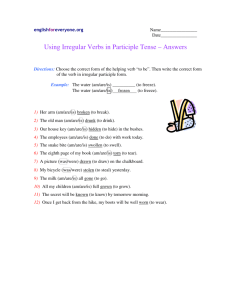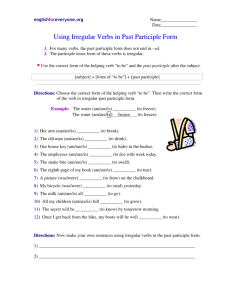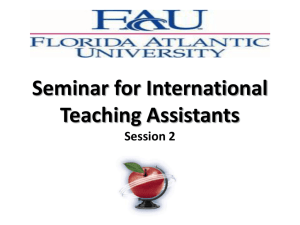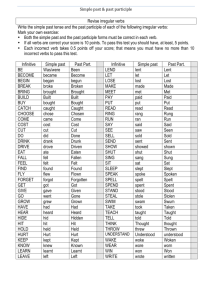Irregular Verbs
advertisement
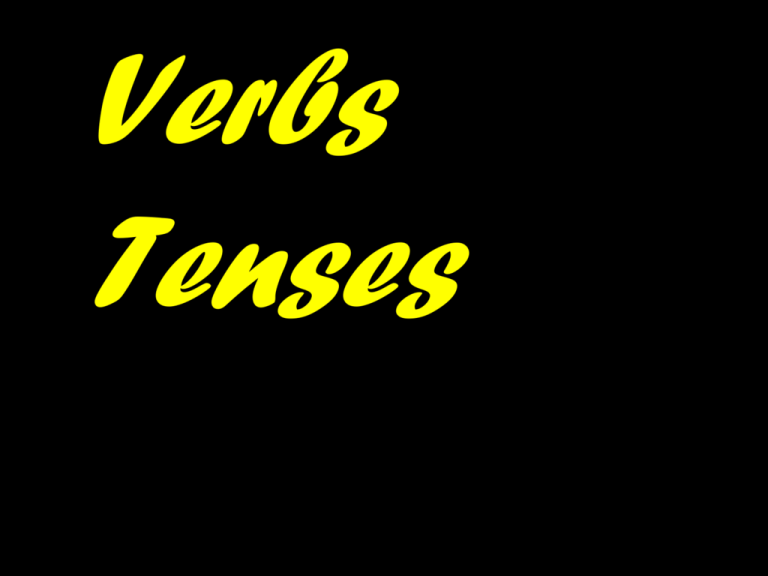
Verbs Tenses Verb Tenses Past – already happened Present – happening now Future – will happen Verb Forms Better known as: Principle Parts of a Verb Verb Forms The principle parts of verbs are used to express time for regular and irregular verbs. The Principle Parts of Verbs Base or Infinite: Is the dictionary form of the verb (help) Present Participle: helping verb plus “ing” (is helping) The Principle Parts of Verbs Past: adding ed to the base verb (helped) Past Participle: adding the helping verb have (have helped) Regular Verbs A regular verb forms its past and past participle by adding – d or –ed to the base form. Base (regular verb) Present Participle (Helping verb – am, are, is) wash Past Past Participle (Helping verb – has, had, have) is washed have washing washed hop am hopped has hopping hopped use are using used had used Present Participle All verbs in the present participle are regular! Spelling Present Participles Most regular verbs that end in – e drop the –e before adding – ing. Some regular verbs double the final consonant before adding –ing or –ed. Examples cause causing caused drop dropping dropped Quick Notes One common error in forming the past or past participle of a regular verb is to leave off the –d or –ed ending. Examples Incorrect: Josh was suppose to meet us here. Correct: Josh was supposed to meet us here. Examples • The audience _____ with laughter. (roar) • The curtains are ______ dust. (collect) • Latisha is _____ the directions. (follow) • I had ____ to do that. (plan) • Alex ____ lemonade yesterday. (serve) • Many farmers have _____ against the new tax laws. (rebel) Verbs Tenses Irregular Verbs Irregular Verbs An irregular verb forms its past and past participle in some other way than by adding –d or –ed to the base form. Irregular Verbs An irregular verb forms its past and past participle in one of the following ways: Changing Vowels Base Present Past Past Participle Participle (Not irregular) win is winning won have won sing is singing sang have sung hold is holding held have held Changing Consonants Base Past make made Past Participle have made lend lent have lent hear heard have heard Changing Vowels and Consonants Base Past catch caught Past Participle have caught draw tear have drawn have torn drew tore Making No Change Base Past Past Participle burst burst [have] Burst cut cut [have] cut hurt hurt [have] hurt Examples • Judy _____ the world record. (break) • Coretta has _____ to research whales. (go) • Larry ___ his lunch. (make) • Our family _____ to the lake. (drive) • She has ____ her leg. (hurt) • The concert has not _____. (begin)

